
Modal verbs summary English ESL worksheets pdf & doc
Modal verbs (must, will, would, should, may, can, could, might, must) precede another verb. Modals do not have subject-verb agreement or take the infinitive "to" before the next verb. This handout shows how modals in academic writing can change a sentence's meaning into a prediction, suggestion, or a question.

Modal verbs summary English ESL worksheets pdf & doc
Summary Key considerations Learners often consider modal verbs to be a particularly 'problematic' area of English grammar. They have problems: • in choosing when to use them. • in choosing which ones to use. • in constructing questions and negative statements involving modal verbs.

SOLUTION Modal Verbs Modal Noun and Modal Adverbs Study Notes Studypool
Modal Verbs in English W W W. E N G D I C . O R G Can We use this verb in the case of importance, asking permission, and Possibility. Could Used for possibility in past, polite request, Conditional sentences and ability. Will Will is use in case of wish, desire, will, confidence, in the future. Should Used for urgent work or moral duty. Must

Modals, Concept & Examples in english. Can, could, might, should, will, may; Could Possibility
A modal verb is a kind of verb that is used to express different language functions: a bility, possibility, permission, request, obligation, advice, etc. Modal verbs always come before the base form of a verb. The most common modal verbs in English are can, may, could, must, should, have to.

a poster with words and pictures on it that describe the different types of modal verbs
Modal verbs are used along with a main verb to indicate ability, necessity, possibility, and permission. In sentences containing modal verbs, the main verb typically takes the infinitive form. Modal verbs come before main verbs and never change form. Examples: How to use modal verbs I might walk to work today.
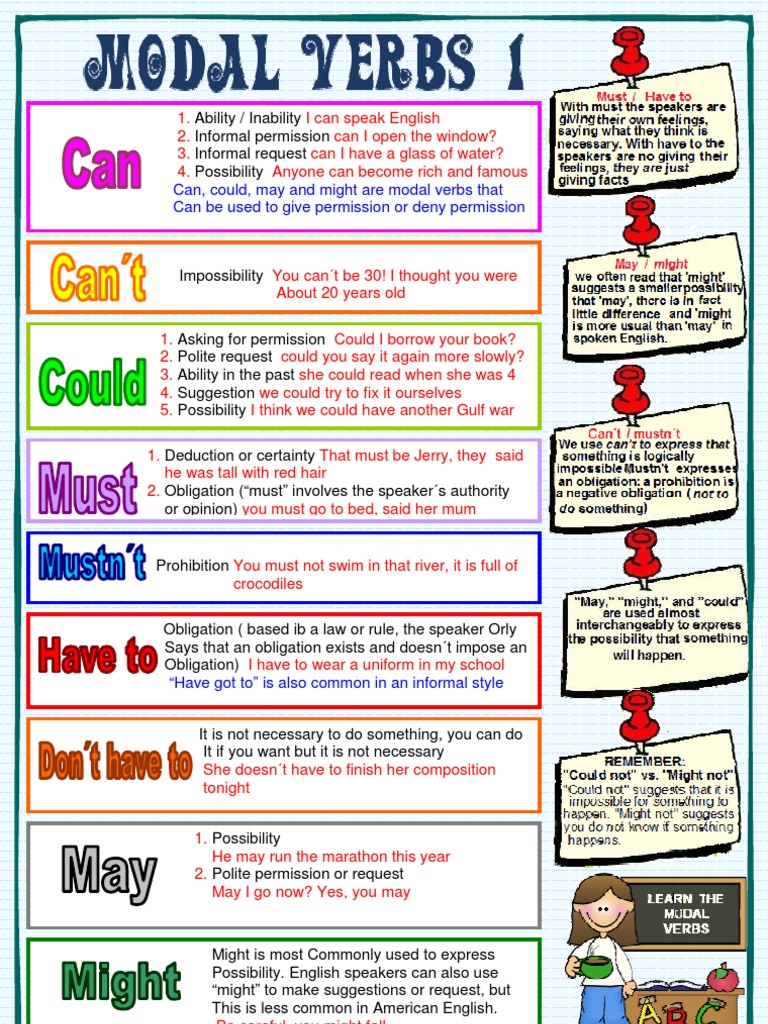
Modal Verbs PDF
Write with Grammarly What are modal verbs? Modal verbs show possibility, intent, ability, or necessity. Common examples of modal verbs include can, should, and must . Because they're a type of auxiliary verb (helper verb), they're used alongside the infinitive form of the main verb of a sentence.

Modal verbs list with examples of how to use them English grammar lesson. Tip Can is a word of
MODAL VERBS: STRUCTURE & USE Must Shall Should Ought to Will Would They do not accept conjugation They do not need other auxiliary verbs He can ski He cans ski or He can skis Would you like to come with me? Do you would like to come with me? They can't be serious They don't can be serious Modal verbs are followed by an infinitive without to
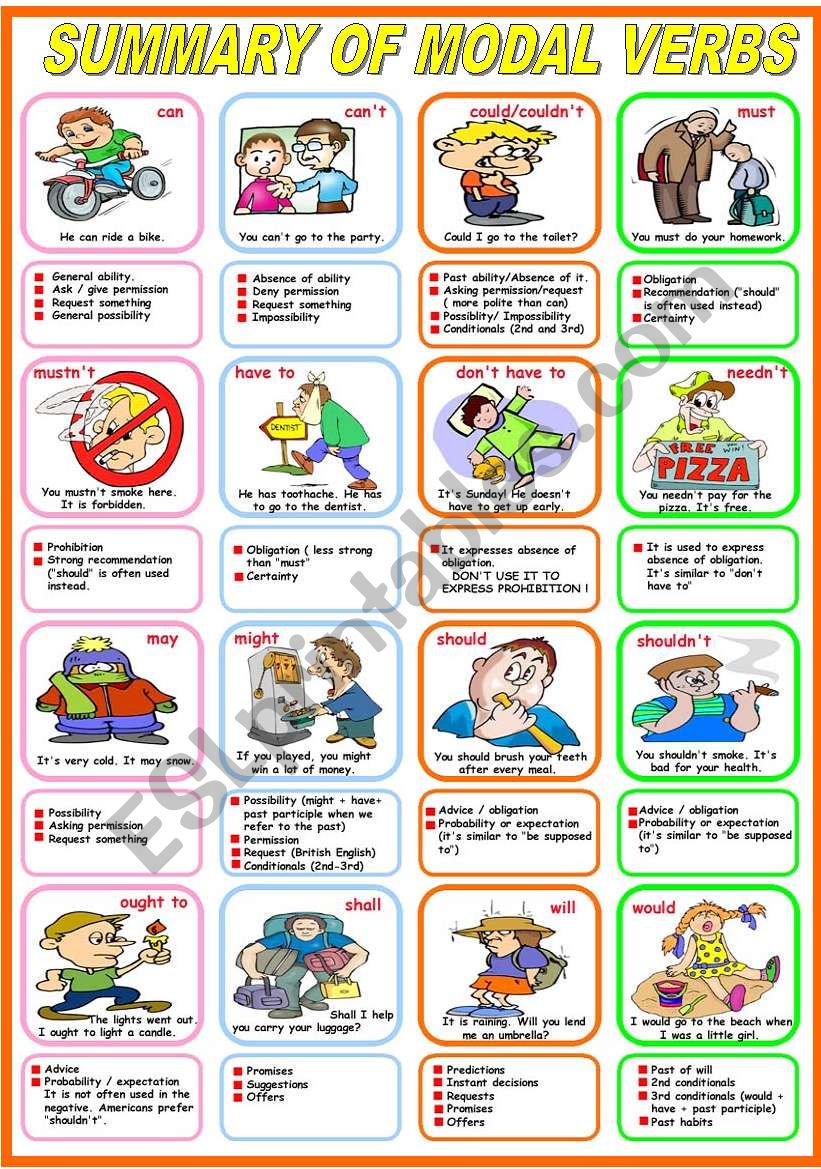
SUMMARY OF MODAL VERBS (B&W VERSION INCLUDED) ESL worksheet by Katiana
Modal Verbs Modals / Modal Verbs express degree of necessity, advisability and certainty. See modals chart below. Subject Explanations: Modal Verbs Chart Could/Should/Would/Must Have Subject Exercises: 1. Mustn't vs Don't Have to 2. Can vs Be Able To With Tenses 3. Must vs Have to / Has to 4. Can vs Could Exercise 5. Modals With Passive Voice 6.

Modal Verbs in English List, Functions and Examples 7 E S L
Modal Verb Can The modal verb can has four definitions: to have an ability to do something, to ask for/give permission, to talk about the possibility of something, to offer/ask for help. The form is… Affirmative Negative Question Short Responses I can work You can work He/she/it can work We can work They can work

Modal Verbs Useful Rules, List and Examples in English ESL Grammar
1 of 4 Modal Verbs Modal verbs(modals) are verbs that add the meaning of logical possibility, ability, necessity, and permission to verbs, which have a degree of strength from stronger to weaker. Modals come before infinitive verbs and the "to" is removed.

Modal verbs table grammar guide English ESL worksheets pdf & doc
The modal verbs in English grammar are: can, could, may, might, must, need not, shall/will, should/ought to. They express things like ability, permission, possibility, obligation etc. Modal verbs only have one form. They do not take -s in the simple present and they do not have a past simple or past participle form.
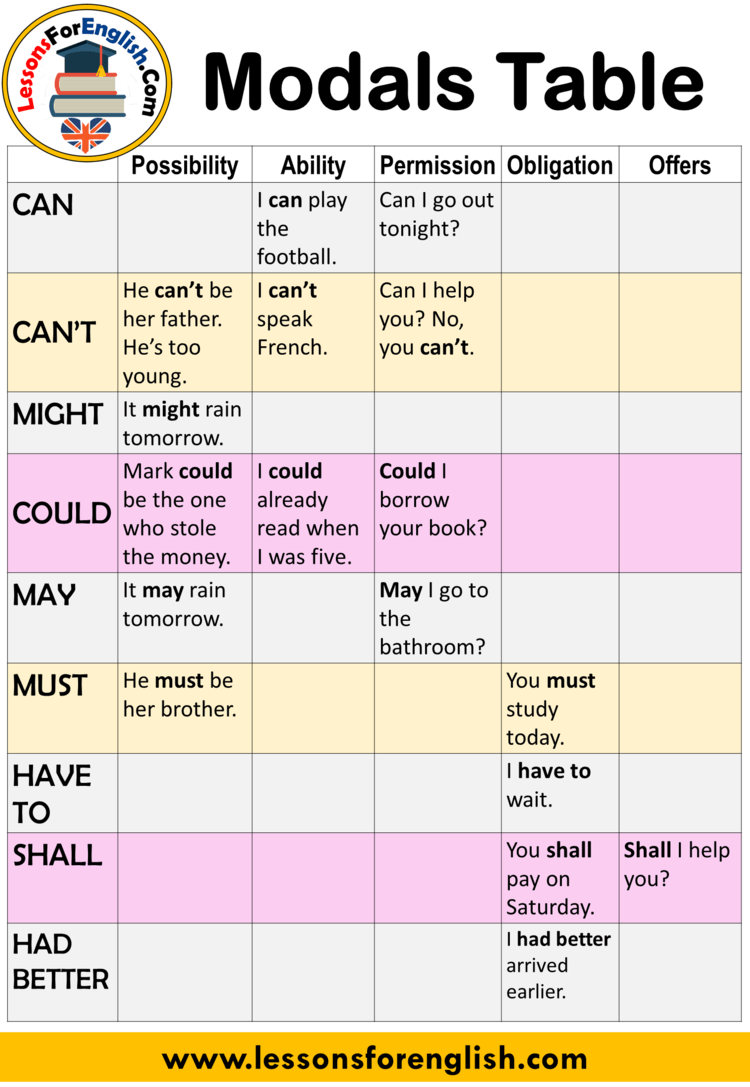
Modals Table, Modals in English Lessons For English
Michael(Blaakman(@May(2015(Modals(are(a(type(of(auxiliary(verb,(or(helping(verb,(that(provide(more(information(about(anotherverb.(In(particular,(modals(areused(to.

Modal Verbs Would, How to Use Modal Verbs in English English Grammar Here English Grammar
Modal verbs 1 - pdf exercises Modal verbs 2 - pdf exercises Modal verbs - worksheets Can, can't, could, couldn't, must, mustn't

MODAL VERBS (2 pages) English ESL worksheets pdf & doc
Modal Verbs - Free download as PDF File (.pdf), Text File (.txt) or view presentation slides online. Modal verbs are used to add meaning around ability, obligation, deduction, possibility, advice, necessity, prohibition, and permission. They share characteristics like not taking -s in the third person and not using an auxiliary verb in questions.
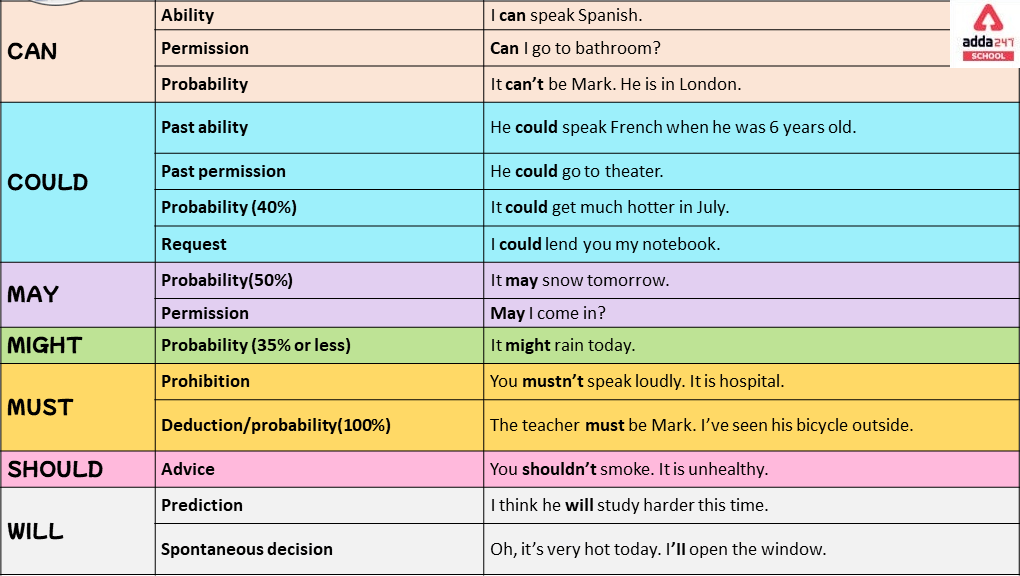
Modal Verbs Chart and List Check Modals Auxiliary Verbs
The modal verbs are: can may must shall will could might should would We use modals to show if we believe something is certain, possible or impossible: My keys must be in the car. It might rain tomorrow. That can't be Peter's coat. It's too small. We also use them to do things like talk about ability, ask permission, and make requests and offers:
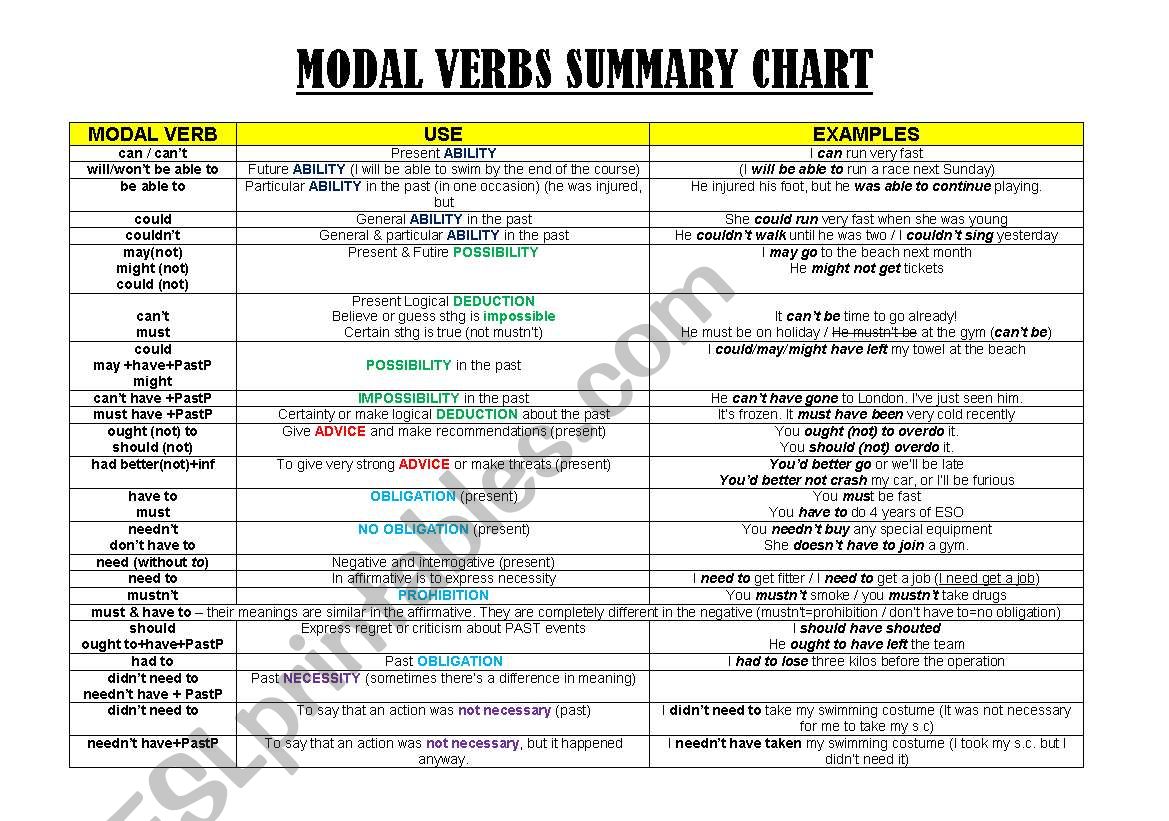
Modal Verbs List Of Modal Verbs With Examples Pdf
Modal verbs summary ANNAINA89 1023 5 18 0 1/6 A simple but effective summary of modal verbs created to help adult learners and younger students as well having a clear idea of all different modal verbs in En…
